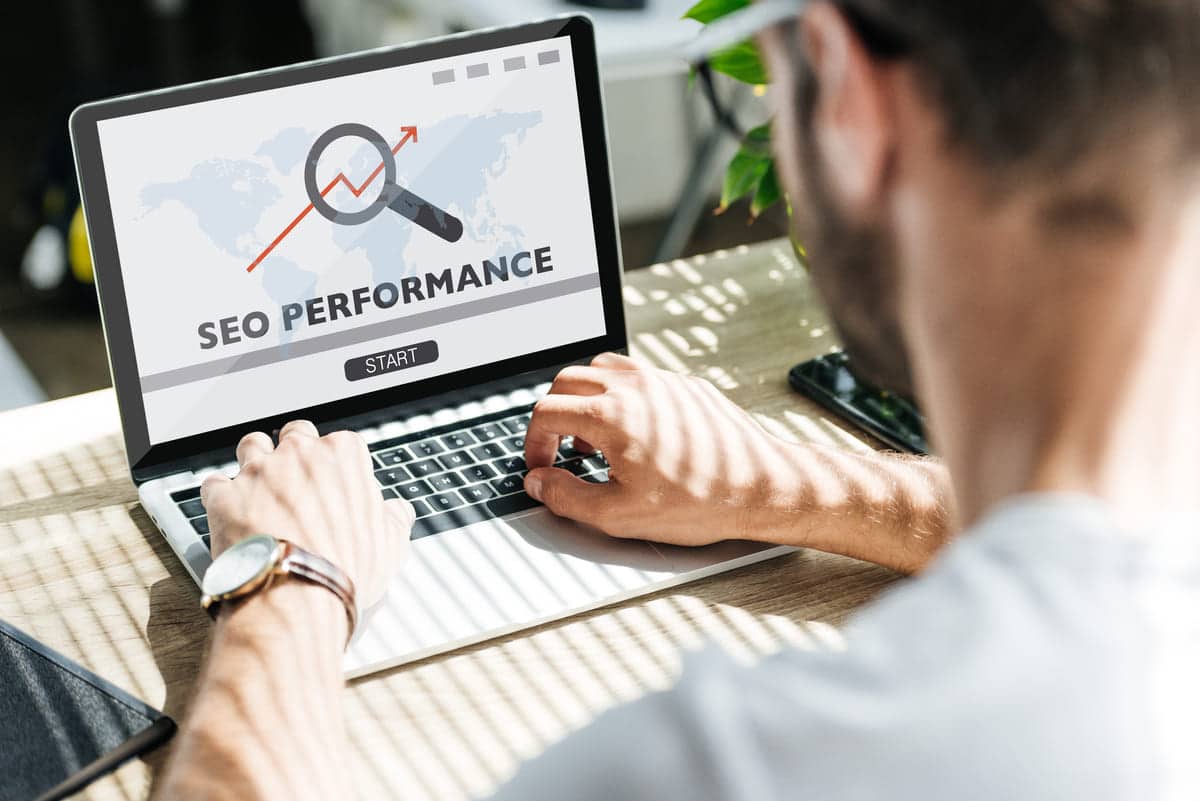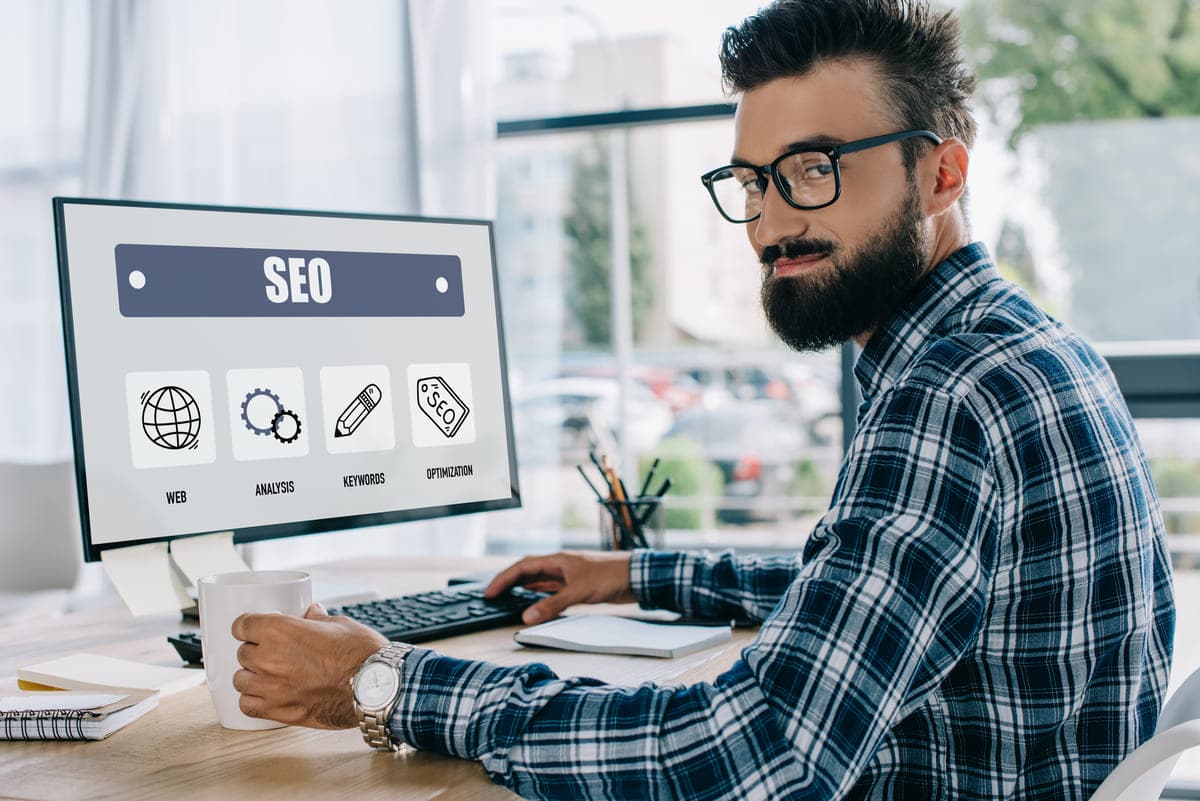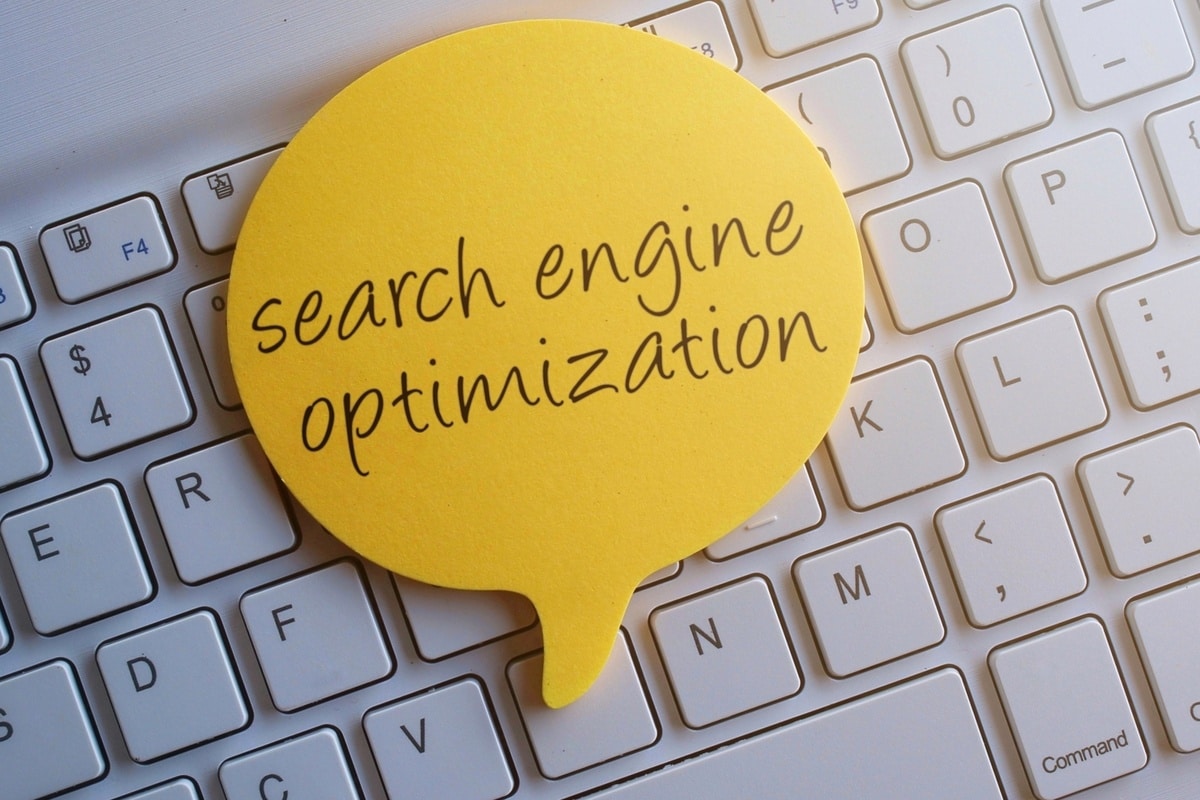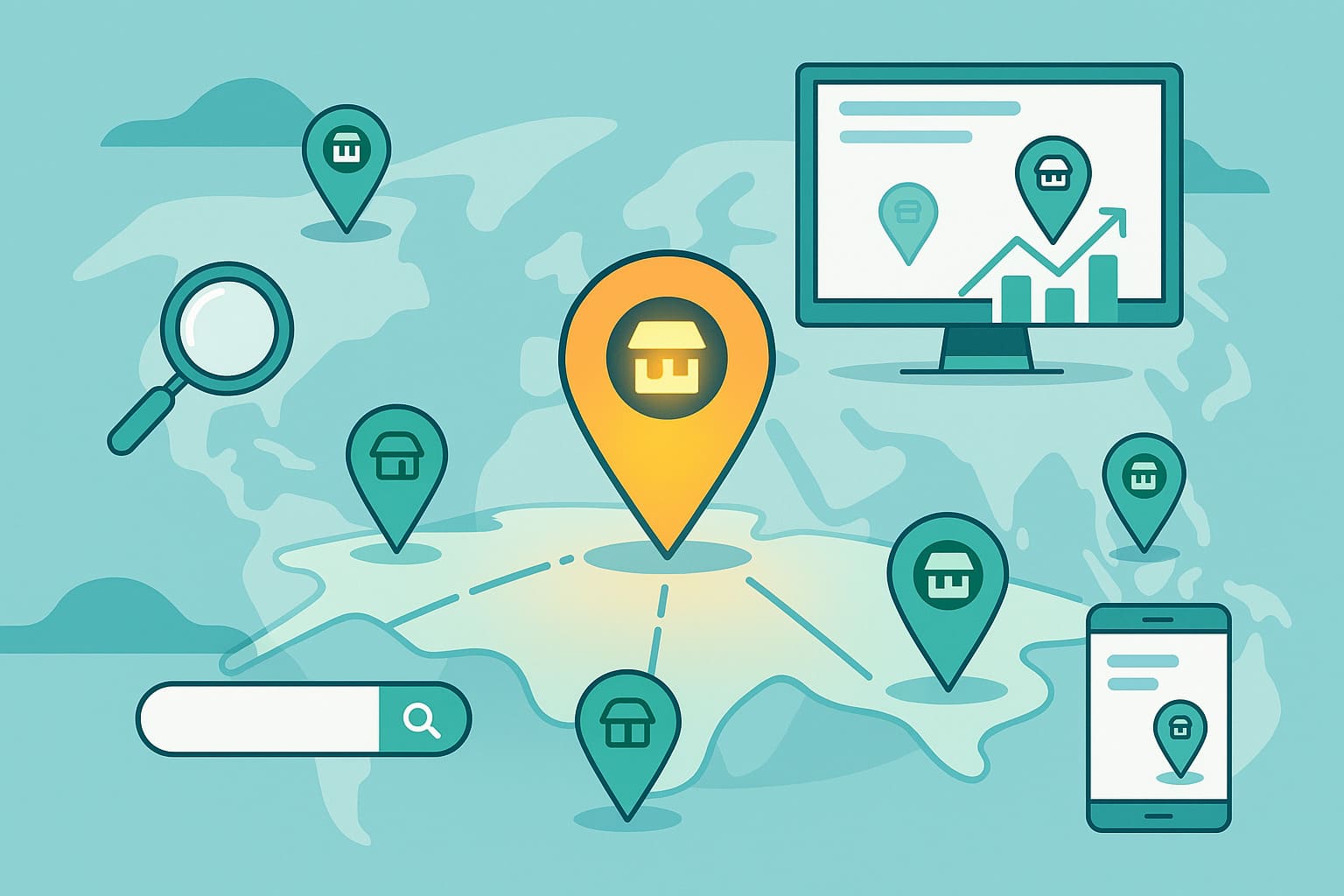Tired of a slow and unoptimized WordPress website? Did you know you can get maximum SEO impact for your WordPress site with the right techniques and knowledge?
You can get your website to the top of a search engine results page (SERP) by dedicating time to optimize your WordPress. Being on top of Google search results is key to increasing your website’s visibility and traffic. By investing in WordPress SEO and implementing proven methods, you can boost your site’s SEO, stand out from the competition and get more traffic to your site. Here in this post we will see how to optimize your WordPress website for maximum SEO.

What is Search Engine Optimization?
Search Engine Optimization, or SEO for short, is the process of optimizing your website to get to the top of search engine results pages (SERPs). It’s a combination of techniques and best practices to make your website visible so that it appears on top of search engine results when people search for keywords related to your business.
The goal of SEO is to make your website more search engine friendly to Google, Bing and Yahoo so that they can crawl and understand your content. By optimizing your site for SEO, you help search engines understand the context and relationships within your content which can lead to better search rankings, search appearance and user experience.
Why is SEO important for WordPress websites?
Important note: SEO is important beyond WordPress websites. No matter what platform or method you use to build your site, investing in SEO pays off. This applies to your WordPress site as well.
WordPress powers 40% of the internet, it’s one of the most popular content management systems (CMS) out there. It’s popular because of its user friendly interface, extensive customization options and huge plugin library.
But with so many websites using WordPress, it can be tough to stand out. That’s where SEO comes in. With the right optimization techniques, your WordPress site can get to the top of search results, get targeted traffic to your site and ultimately increase your online presence. An SEO plugin like Yoast SEO, Rank Math or All in One SEO can help optimize your WordPress site’s SEO by providing guidance and automation for all SEO tasks.
How to Optimize WordPress for Maximum SEO In Action
Ready to see WordPress SEO best practices in action? Implementing these will improve your website, get organic traffic and establish your brand on search engines. Using SEO tools for better content creation can give you better results. Let’s get started!
Choose a good hosting provider
The first step to optimize your WordPress site is to choose a good hosting provider. A good host ensures your site has minimal downtime which is key for SEO. Search engines penalize sites that have frequent downtime as it means poor user experience.
A good hosting provider will also offer fast page loading speeds which is also important for SEO. Website page speed is a ranking factor and a slow loading site can hurt your search engine rankings.
Use an SEO theme
When choosing a theme for your WordPress site, make sure to choose one that is SEO friendly. A well designed theme with clean code can improve your site’s loading speed and make it easier for search engines to crawl.
Also an SEO friendly theme will have features like responsive design which is important for mobile optimization another ranking factor. Some popular SEO friendly WordPress themes are Astra, Divi, GeneratePress and Schema.

Check your WordPress visibility settings
To make your site visible, go to the “Settings” tab and click “Reading”. Look for the “Search engine visibility” section at the bottom of the page. By default the checkbox is not checked. If your site is live and ready for Google rankings leave the box unchecked.
Organize your site
A well organized site is important for SEO. It allows search engines to crawl and understand your content better and improve your chances of ranking higher in search results.
In WordPress you can organize your site by using categories and tags. Categories help you to group your content into broad topics and tags help you to categorize your posts based on keywords. By using categories and tags properly you can improve your site’s overall structure and make it easier for search engines to understand.
Use SEO plugins
WordPress has many SEO plugins that can help you optimize your site. These plugins have features like XML sitemaps, title and meta tag optimization and social media integration. Make sure to choose a good WordPress SEO plugin for better optimization.
Some of the most popular SEO plugins for WordPress are Yoast SEO, All in One SEO Pack and Rank Math. These are easy to use and can give you better search engine rankings.
Use SSL Certificate
Apart from the above steps, make sure to secure your WordPress site with an SSL certificate. This will encrypt all communication between your site and visitors and provide a safe browsing experience.
Having an SSL certificate also tells search engines that your site is trustworthy which can help your SEO efforts.
Use SEO permalinks
Another important step to optimize your WordPress site for SEO is to use SEO friendly permalinks. This means keep them short, descriptive and include keywords.
Don’t use generic permalinks with numbers or special characters as they are hard for search engines to understand. Instead use descriptive words that describes the content of the page.
Use XML Sitemaps
XML sitemaps are important for SEO as it helps search engines to understand a site’s structure by providing a map of all the pages and posts on your site. This makes it easier for them to crawl and understand the content on your site.
WordPress has many plugins that can help you create XML sitemaps like Google XML Sitemaps and Yoast SEO. Once created submit your sitemap to Google Search Console to improve your site’s visibility and indexing.
Optimize images
Images are important to make your site visually appealing to visitors. But they can also hurt your site’s SEO if not optimized properly.
When adding images to your WordPress site make sure to use descriptive filenames and alt tags with relevant keywords. Also compress images. This will help search engines to understand what the image is about and increase the chances of it to appear in image search results.
Keyword research
Keyword research is one of the important part of SEO. This is identifying the keywords and phrases that your target audience use to search for products or services like yours. Proper keyword research can impact a site’s SEO by making sure your content matches what users are searching for.
There are many tools available like Google Keyword Planner and SEMrush that can help you with keyword research. Once you have the list of keywords, incorporate them strategically in your website content including page titles, headings and meta descriptions.
Create good content.
Content is the soul of any website and plays a big role in WordPress SEO. Make sure to create good content that provides value to your audience.
When creating content for your WordPress site make sure to include relevant keywords naturally and avoid keyword stuffing. Your content should be well written, informative and easy to read. This will not only help with SEO but also keep visitors on your site longer, reduce bounce rates and improve user experience. Also update your content regularly to keep it fresh and relevant to both search engines and visitors.
Improve your site’s speed
As mentioned above website speed is a ranking factor for search engines. So make sure your WordPress site loads fast.
You can improve your site’s speed by optimizing images, using caching plugins and minimizing the use of external scripts and plugins. Regularly monitor and fix any issue that slow down your site can impact your search engine rankings.
Use internal linking
Internal linking is the practice of linking to other pages within your own site. Not only it helps with website navigation but also helps search engines to understand the structure and hierarchy of internal links on your site.
When creating content for internal and external links on your WordPress site use internal linking to link to related pages or posts. This will distribute link equity throughout your site and can improve your overall SEO.
Use Nofollow External Links
When linking to external sites make sure to use rel=”nofollow”. This will tell search engines not to pass any link juice to the linked site and prevent your site from getting penalized for any issue with the external site. Also only link to reputable and relevant sources.
Make Your Site Indexable
Make sure your WordPress site is indexable by search engines. This means the robots.txt file on your site is not blocking any page from being crawled and indexed.
You can also use Google Search Console to monitor your site’s indexing status and fix any issue that’s preventing it from appearing in search results.
Manage Your Security
Securing your WordPress site is important for both SEO and user experience. A hacked or compromised site can lose its ranking fast as search engines will flag it as not safe.
To secure your site update WordPress core, themes and plugins regularly. Also use strong login credentials and consider two-factor authentication.
WWW or non-WWW
When setting up your WordPress site you need to decide whether to use WWW or non-WWW version of your domain. This may seem trivial but search engines see WWW and non-WWW as two different sites.
To avoid duplicate content issue and ranking conflict stick to one version and redirect the other to your chosen one. This will help rank your WordPress Site.
Mobile responsiveness
In today’s mobile driven world having a mobile responsive website is important for SEO. More and more users are accessing the internet through their mobiles, search engines prioritize sites that offer a smooth experience on all devices.
Most of the WordPress themes are already responsive but make sure to test your site on various devices and ensure it looks and works fine. This can impact your search engine rankings.
Optimize Comments
Comments on your WordPress site can also affect your SEO. Make sure to moderate comments and remove any spammy or irrelevant ones.
Also you can encourage visitors to leave meaningful comments by asking questions at the end of each blog post. This will not only improve engagement but also add fresh content to your site and signal to search engines that it’s active and updated regularly.
Canonical Tags for Duplicate Content
Duplicate content, i.e. same or very similar content on different pages of your site can harm your search engine index and WordPress optimization. Avoid this, use canonical tags to tell search engines which version of the page is the preferred one and prevent them from indexing duplicate pages.
Social Sharing
Social media can be a great tool to drive traffic to your site and online presence. Make sure to enable social sharing buttons on your WordPress site so visitors can share your content on their social media.
This will not only increase your reach but also tell other search engines that your content is valuable and shareable and can improve your SEO efforts. Also actively engaging on social media can also impact your site’s visibility and traffic.
Monitor and Improve
SEO is a continuous process and you need to monitor your WordPress site regularly. This includes tracking your search engine rankings, traffic data and identify areas to improve.
Updating and optimizing your site’s content, structure and other elements can improve your site’s SEO and keep it relevant to both visitors and search engines. Stay updated with the latest SEO trends and techniques to keep your WordPress site ahead of the competition. Continuous effort is required to maintain and improve a WordPress site.

Off-Page WordPress SEO Practices:
Build Quality Backlinks
Backlinks aka incoming links from other sites are an off-page SEO factor. But not all backlinks are created equal. You need to focus on building quality backlinks from authoritative and relevant sources.
You can do this by creating content that naturally attracts backlinks or by reaching out to other sites and offering guest posts or collaborations. Avoid black-hat tactics like buying backlinks which can harm your site in long run.
Social Media
In addition to enabling social sharing on your site, actively engaging on social media can also impact off-page SEO. By building a social presence and sharing your content regularly you can attract more visitors to your site and increase visibility.
Also having presence on multiple social media platforms can help you reach a larger audience and build backlinks from social media profiles as well.
Influencer Marketing
Partnering with influencers in your niche can also be an off-page SEO strategy for your WordPress site. By partnering with influencers who have a large following and credibility you can reach a larger audience and build backlinks from their site or social media profiles.
Make sure to choose influencers whose values align with your brand and have an engaged audience that is likely to be interested in your products or services.
Guest Blogging
Guest blogging on relevant and authoritative sites can also improve off-page SEO. By offering valuable and informative content on other sites you can build backlinks to your site and reach a larger audience.
But make sure to guest blog only on high quality sites with good domain authority and avoid using spammy or irrelevant links in your posts.
Monitor Your Online Reputation
Your online reputation can also impact your off-page SEO. Negative reviews or comments about your brand can harm your online presence and affect your search engine rankings. Monitor and address negative feedback, respond to customer reviews and maintain a positive online reputation.
Local SEO
If you have a local business, local SEO is a must. List your business on Google My Business and other relevant directories, use local keywords in your content and ask customers to leave reviews. This will help you to increase visibility in local search results and drive more traffic to your WordPress site.
Conclusion
Both on-page and off-page SEO is required to drive organic traffic to your WordPress site and improve search engine rankings. Monitor and optimize your site regularly and follow best SEO practices to stay ahead of the competition and attract more visitors to your site.
Happy blogging! Grow and evolve! 😊👍 😉👊 🚀👍






